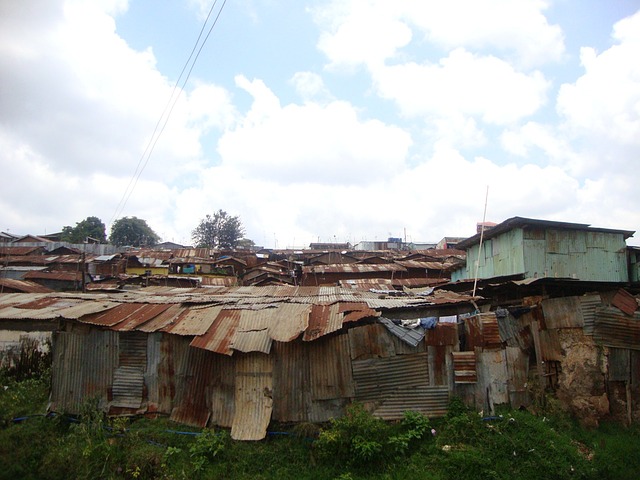- It is argued that climate change is already making people poorer.
- Despite the growing population, those living in extreme poverty have been falling consistently overall, especially since the 1990s.
- The data shows that allowing economies and infrastructure to develop are much simpler and proven answers to the problem of poverty than climate change mitigation.
Green campaigners have argued climate change is already making people poorer and will increase rates of poverty. They argue similarly that solving the problem of climate change will in itself tackle the problems of poverty and inequality. But the data shows that extreme poverty was well on the way to being solved, and that climate change has very little to do with it.
Despite a growing population, the number of people living in extreme poverty fell from around 2 billion in 1980 to 0.7 billion at the end of the 2010s. This fall is no reason for complacency, but it shows firstly, there is no worsening of the problem nor climate-related effect, as climate campaigners argue.
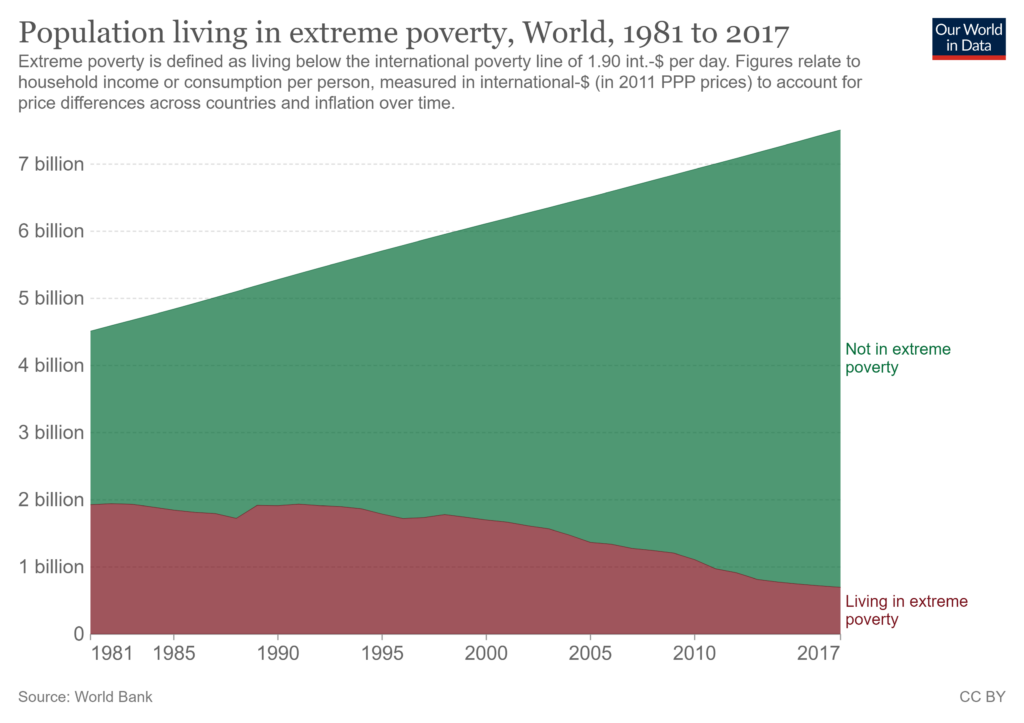
The most radical change in people’s condition occurred in China, showing that population increase is not, as some greens claim, a fetter on economic and social development. It also shows that urbanisation, economic liberalisation and industrialisation are proven factors in the elimination of extreme poverty – a fact which also runs counter to much green thinking.
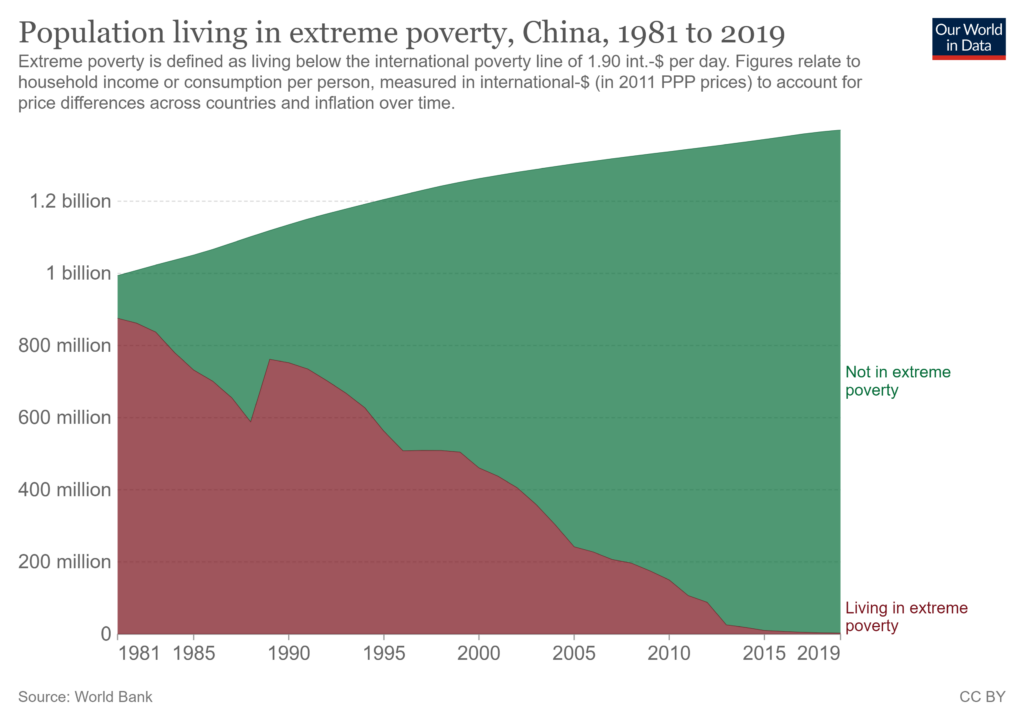
Progress in Sub-Saharan Africa has been much slower. Though the proportion of people living in extreme poverty fell from 55% to 40% since 1990, the number of people experiencing it rose slightly as the population increased. This population increase shows that while the most serious problems afflicting people in the world’s poorest region are now being addressed, economic problems persist. These shall be explored in other sections of this column.
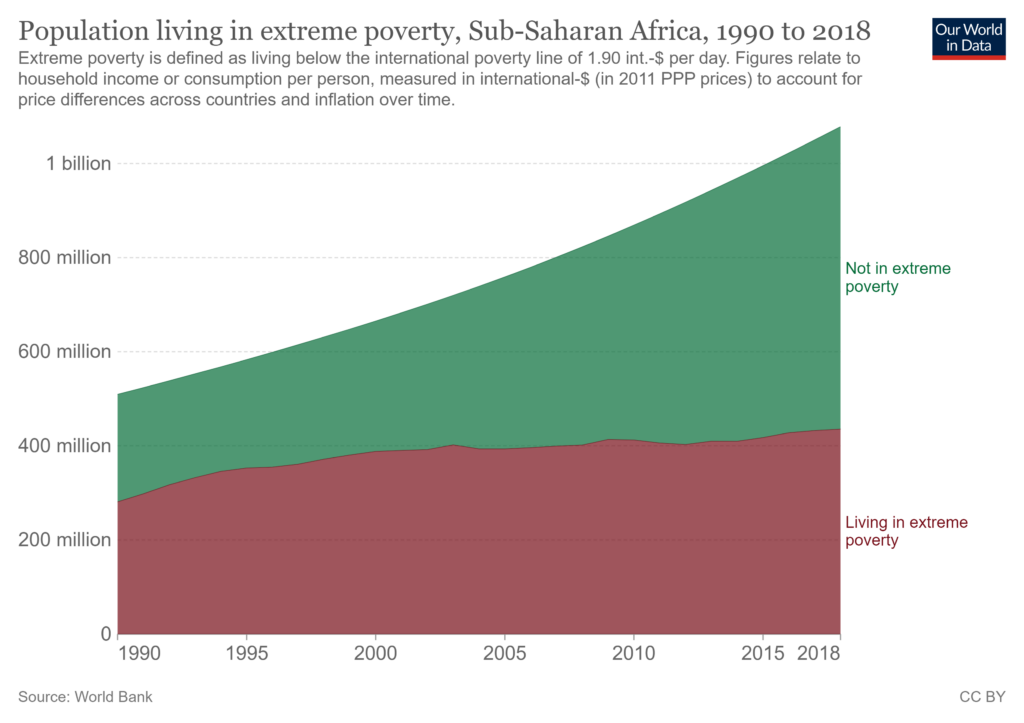
The case of India shows the increasing pace of progress to the elimination of extreme poverty in the world’s second most populous country. Since 2002, the absolute number of people living in poverty began to fall significantly, reflecting the economic progress the country had been making for decades.
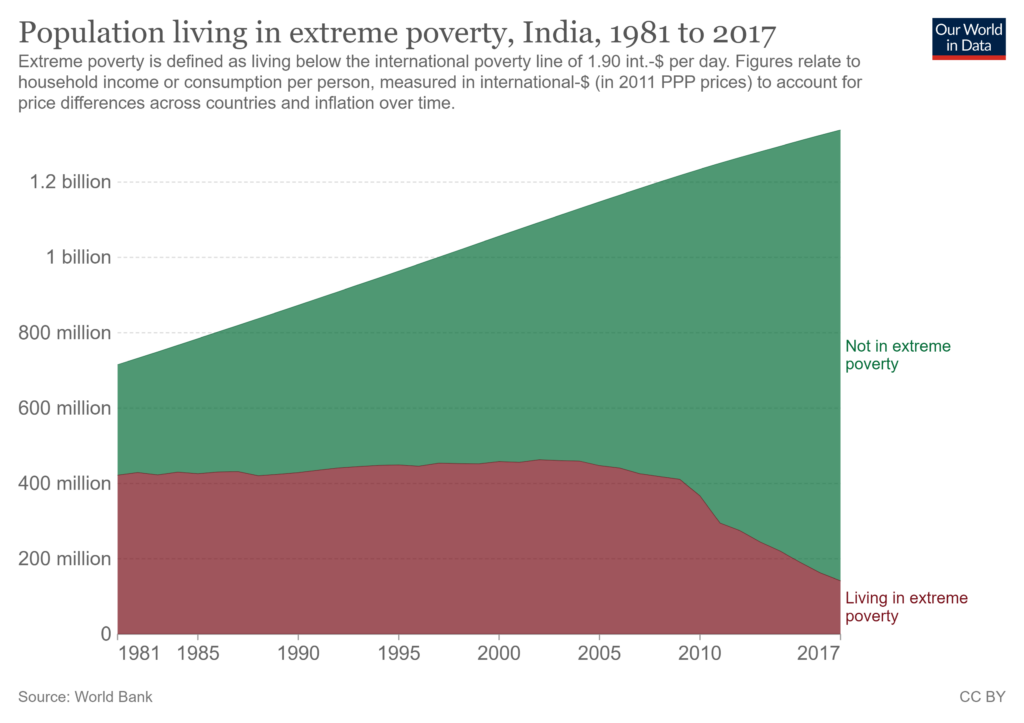
What the data shows in each case is that the picture of the world offered by environmentalists is simply false. There is no evidence of climate change in statistics relating to extreme poverty at global or regional scales, and the claim that people’s conditioning is worsening is wholly inaccurate and misleading. The world has seen extraordinary progress in recent decades, not the collapse that young people are taught to fear.
